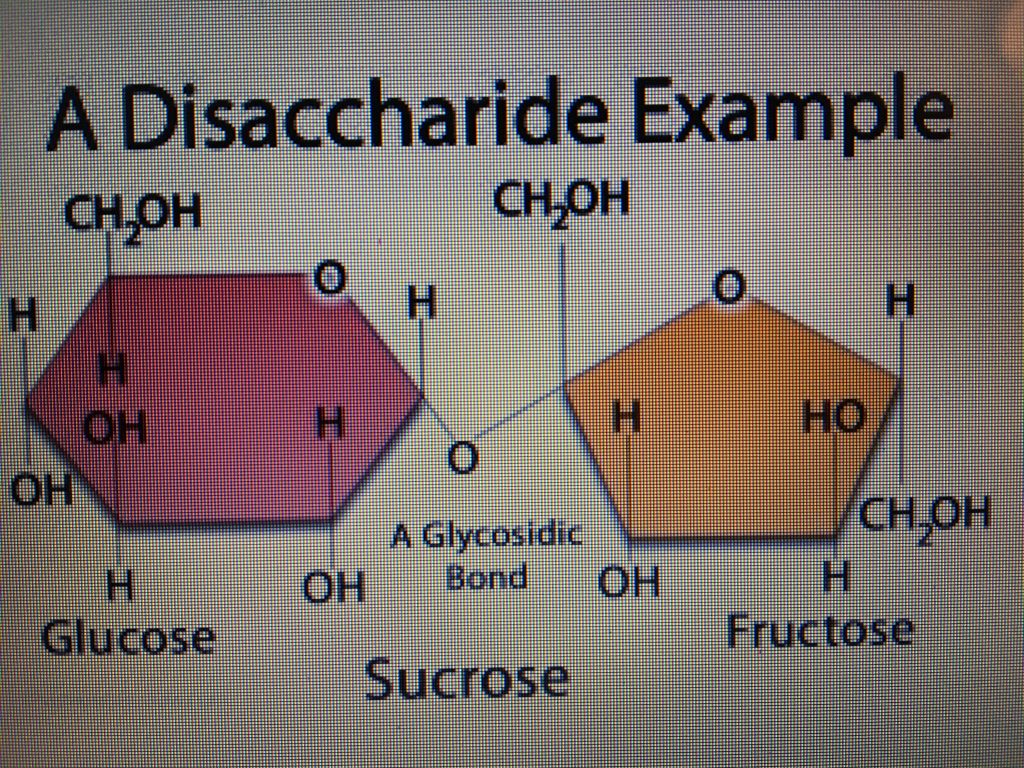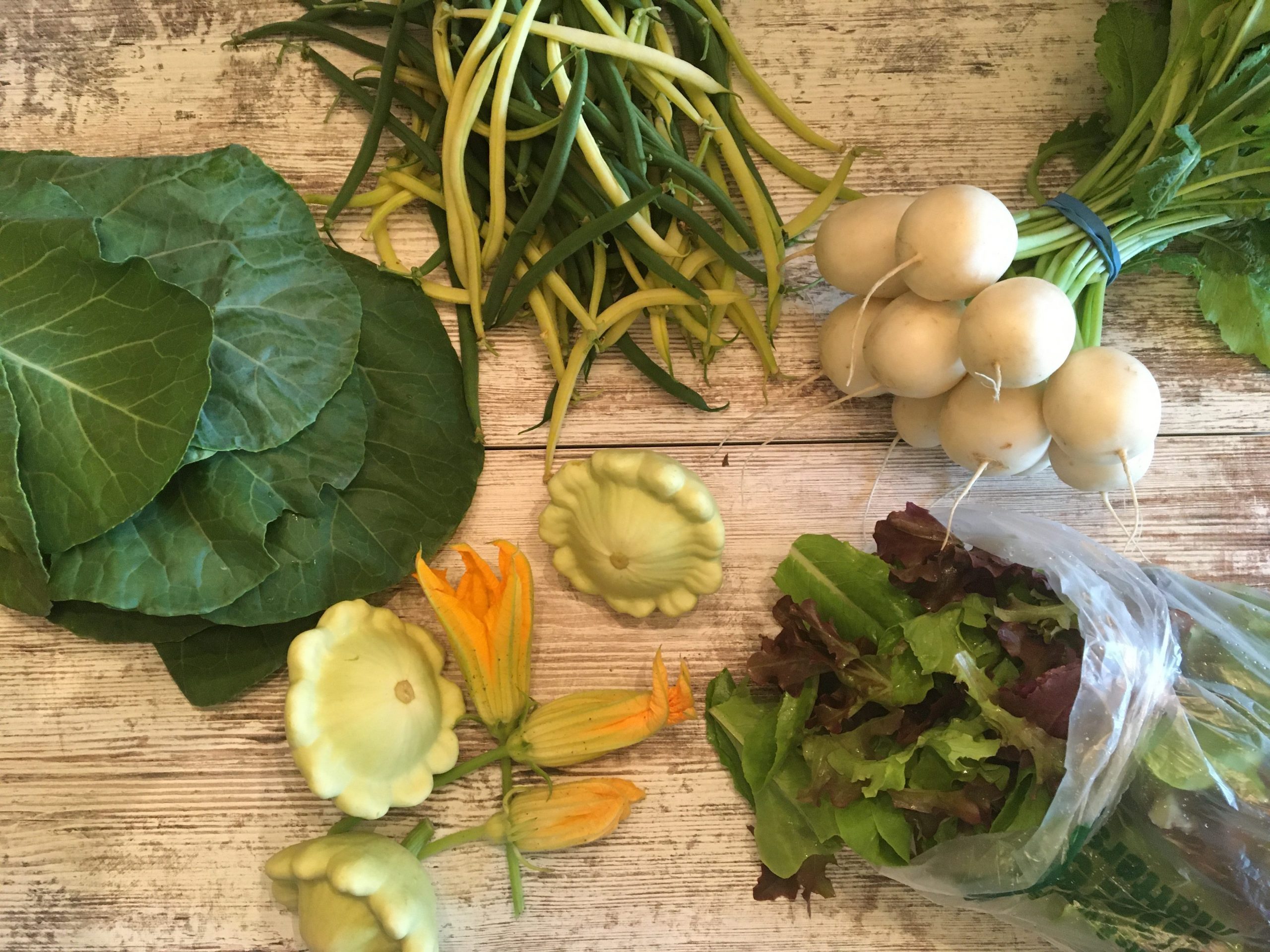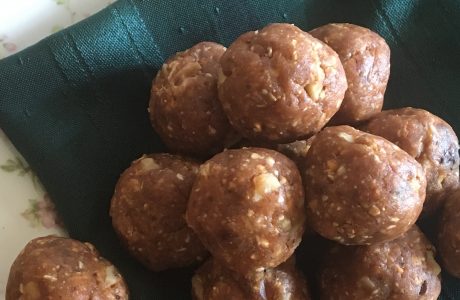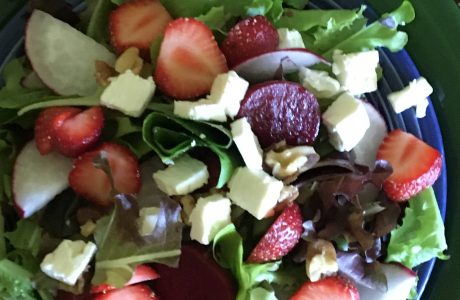Let’s talk about the very important topic of how to break up with your sugar addiction. Sugar is, without question, a poison to the brain and is something that is hidden in many . . . many foods. Specifically processed foods.
High Fructose Corn Syrup By Any Other Name Is Still HFCS
Let’s start with reading labels. Ingredients called High fructose corn syrup, corn syrup, fructose, or fructose syrup all mean the same thing.
You might even see a processed food advertising, “No high fructose corn syrup” but then, in the list of ingredients, you will see “fructose” which is processed and the highest concentrated form of high fructose corn syrup (HFCS).
Other names . . . Maize syrup, glucose syrup, glucose/fructose syrup, tapioca syrup, fruit fructose, and crystalline fructose.
Fructose sounds healthy . . . .right? After all, there is fructose in fruit. And fruit is good for us . . . . What’s wrong with fructose? Eating a piece of fresh fruit is not the problem.
Fruit contains fructose, but a piece of fruit has a lower fructose content per serving compared to a serving of soda. But in addition to fructose, fruit also contains vitamin C, fiber, and antioxidants that balance the effects of fructose.
The low dose of fructose, as what would be in a piece of fruit, begins to be metabolized in the gut, so less fructose makes it to the liver. The fiber in fruit is also helpful to the overall health of your gut.
HFCS is not made from fruit. It’s made from . . . well . . . corn. Enzymes are added to change the glucose in the corn starch to fructose. When high levels of this artificial sugar are ingested, it saturates your gut receptors.
When you take in too much fructose, especially in the amounts found in processed foods, the excess fructose goes to the liver and is stored as fat.
HFCS is added to many foods during processing to improve flavor, and it is very addicting.
Does this alarm you? Are you ready to start eliminating this from your diet?
Break the Disaccharide Chain

The biggest, most important change you can make in your diet is to curb sugar intake. It is virtually impossible to cut out all sugar. We all go to restaurants on occasion. We all celebrate life events with food that includes cake, cookies, candy, etc. I’m not suggesting you end all pleasures.
I do, however, believe what you do the majority of days will make a huge difference in your wellness, fitness, and happiness.
Can you do the right thing 80-90 percent of the time? Pick your pleasures wisely. I can attest to the fact that the less sugar you eat, the less you will crave sugary foods. They won’t even taste as good once you get through the detox.
What is Sugar Doing to Your Body?
We know that excessive sugar leads to and aggravates diabetes. That’s the obvious one. But it is extremely addictive. More addictive than cocaine!
Addiction to Sugar
Sugar addiction is real! Just like any drug addiction, over time, our bodies require more of it to reach the same level of satiety.
Obesity
The more sugar you eat, the more calories you are taking in and the higher the number on the scale leading to obesity. This is a no brainer for most.
Your Heart
So maybe sugar doesn’t add plaque to the arteries directly, but it increases the risk of diabetes, which has a direct connection to cardiovascular and peripheral vascular disease. Not to mention obesity, which can lead to high blood pressure, sleep apnea, and eventually the possibility of cardiac arrhythmia’s.
Additionally, fructose is a fat producing sugar. It not only increases fat storage but also increases triglyceride levels and decreases the HDL (Good Cholesterol). This is how sugar contributes to cardiovascular disease.
There is minimal focus on nutrition education in medical school, or so I have heard from some of the physicians I know, so ask your doctor to connect you to a dietician if you feel you need more information than the basics in this article.
Mood Swings
Sugar affects your mood, compromising the ability to process emotions when blood glucose levels are elevated. Brain imaging studies have shown that high levels of sugar consumption are associated with an increased incidence of depression.
Disclaimer ~ Never stop taking anti-depression medications without working with your doctor.
Alzheimer’s Disease and Dementia
The changes associated with developing Alzheimer’s Disease begins long before symptoms develop.
The gnarled amyloid process starts in your brain early in life, so the sooner you make changes to keep your brain healthy, the better.
Your Brain
Well . . . .it’s complicated. Anytime you have an elevation of blood sugar there is a harmful effect on the brain. It decreases your memory, attention span, and the overall cognitive function of your thought processes. Sugar causes an inflammation process in your brain.
The good news is there is evidence that memory damage caused by sugar can be reversed by decreasing your intake of sugar in your diet. However, there are long-lasting effects in the brain that can lead to problems later in life if your sugar intake continues to go unchecked, which I will get into on a very basic level.
More on Glucose and the Brain
Very simply stated, the brain needs glucose to perform its basic functions such as making decisions, focusing, and doing mental calculations.
Glucose does not equal sucrose or high fructose corn syrup, known by that or any other name.
Your liver also converts amino acids into glucose. Amino acids are broken down from protein and help with building muscle and maintaining a healthy immune system.
The best sources of these essential amino acids come from meat, eggs, and poultry. Now, that’s great if you’re a meat-eater, but not everyone is. Beans, legumes, seeds, and nuts are good forms of protein, although they’re not absorbed as easily as animal protein.
The liver converts the essential amino acids into glucose, which is needed by the brain. Remember what I said about depression? The brain loves and needs glucose. Rid your diet of the unhealthy forms of sugar, and your brain will be happier for it.
These unhealthy forms of sugar are a big contributor to Alzheimer’s Disease. This is not only devastating to the person diagnosed with it, but it is just as devastating to the family members caring for that person.
I know this to be true. My mother was stricken with Alzheimer’s Disease. It’s the hardest thing ever to watch a truly intelligent, loving human being forget how to perform very basic life skills and be reduced to zero quality of life before death becomes their best friend.
Your Genes do not Equal Your Destiny
Your brain begins to develop amyloid plaques that will start you on the Alzheimer’s journey before you ever have symptoms. We have likely all started on this journey. The younger you are when you realize this, the better. But as long as you have the capability to learn and change your lifestyle, the better your chances of stopping this progression.
Some people have a gene called the ApoE4 gene that would suggest that you are more likely to develop Alzheimer’s Disease. However, having that gene does not mean that you are doomed. You’re not! You have the power to stop the progression.
Alternatively, some don’t have the gene and do develop the disease. This tells us that your genes do not necessarily determine your destiny! This is great news!
Stop Buying into the Heredity Lie
I hear my cardiac patients talk about their diabetes, heart disease, and hypertension and many times blame it all on heredity. This is false information. You are ultimately in control.
Additionally, how lucky are those who know their family health history? Those of us who are adopted have no idea of what our genes may have a predisposition to. I am in that category. Yet I don’t fear the reaper because of the lack of knowledge about my biological family’s health history.
That doesn’t mean I won’t develop health problems. It means I can work to live my healthiest and avoid the unknown predispositions I may have related to my bloodline. If you know your family history, you have a good chance of avoiding the same fate as “Grandma”.
Diabetes 101
Most people who have had diabetes for any length of time know their bodies better than anyone and can run circles around hospital workers when it comes to managing blood sugars. So the information I am giving you today mainly applies to those who are not compliant with the diet. And . . . you know who you are. Your A1C levels are the evidence.
I would like to state that if you have diabetes, and want to improve your diet, I would strongly encourage you to talk with your healthcare provider and make a plan. Discuss the possible things that are likely to happen as you change your eating practices and how you can stop or decrease the reliance on your insulin or oral medications to counter the results of eating poorly.
Work with a dietician who your healthcare provider can connect you with so as your body changes, you can adjust your pharmaceutical assistance with their direction.
Type I diabetes is a different breed than type II diabetes. So know your type and know that many people who are type II have the ability to change the effects of your type II diagnosis.
Type I diabetics do not make insulin. Type II diabetics do make insulin but simply stated your body isn’t able to use it properly. They are treated differently. So know this and work with your provider.
So have I made my case yet? I hope so. And I hope I have encouraged you to take the first step.
Subsidized Foods Are Not Always the Healthiest ~ But Tend to Be the Cheapest
The government has subsidized foods that aren’t always used in ways to be the most nutritionally sound. Have you ever wondered why it costs more to eat healthy than it does to get something off the dollar menu at a fast-food drive-through? Yep . . . that’s our government hard at work.
If they really cared about your health, they would be subsidizing fresh and local organic foods from growers in your communities. Why do you think it costs more to go to the farmers’ market than the grocery store? Having been a local grower, I could tell you more than you would ever want to know on that subject.
I am also a true believer that you will either pay for the state of your health now or in the form of insurance co-pays and deductibles later when your body starts to fail you from consistently poor lifestyle choices. So my advice is to buy healthy food now and avoid the “piper” later.
Foods with Hidden Corn Syrup
Here is a list of just some of the foods that have hidden sugars:
- Bread ~ Don’t let the “whole wheat” label fool you.
- Salad dressings ~ Make your own oil and vinegar-based dressings.
- Canned fruit ~ Eat fresh fruit whenever possible. Frozen is fine if it is frozen without sugars or preservatives.
- Cereal ~ Even if it says cholesterol-free or heart-healthy or fat-free. Read the label. They have to make up for the loss of flavor from fat by adding something. That something is usually sugar or corn syrup.
- Maple syrup ~ There should only be one ingredient in any good quality maple syrup. That one ingredient should be “maple syrup”.
- Peanut butter ~ Look for peanut butter with just one or two ingredients. Peanuts (of course) and salt. Some peanut butter brands have peanuts only, so if you are watching your sodium intake, they do exist.
- Protein bars ~ Many protein bars have an enormous number of unrecognizable ingredients. There are, however, protein bars that only have real food ingredients. And the fewer ingredients the better.
- Yogurt ~ Go for plain yogurt, add your own fruit and a touch of honey.
- Boxed macaroni and cheese ~ I know it tastes good but . . . what’s really in that powdered “cheese” anyway? Read the label and find out.
- Frozen pizza ~ No joke . . . I know I know . . . it seems like a bad dream. Make your own pizza. Seriously, it’s not that hard.
These are just a few examples, but hidden sugar is in many . . . many . . . no joke . . . many processed foods.
It’s Not Too Late to Change Your Lifestyle
I wish I could say that I have followed a lifetime of healthy eating and healthy lifestyle practices. The real story is that I grew up on an acreage where we grew huge gardens, and we raised pigs, dairy cows, chickens, ducks, dogs, cats, rabbits, horses, yada, yada, yada.
Looking back, however, we didn’t always eat the healthiest. There was a lot of sugar, and artificial forms, of both sugar and fat in my diet as I grew up. That’s not to criticize the adults in my life. That is what was presented by the government entities as “healthy”.
We know now that the information available when I grew up and what I taught to my own children was a total lie.
I Want to Break Up with Sugar . . . but How?
- You are the only one who can make a change in your life. I am here today to help you begin to focus on the type of food you are putting in your body.
- Women should eat no more than 100 calories per day of sugar (the equivalent of 6 teaspoons) and Men, no more than 150 calories per day (the equivalent of 9).
- If you have a medical condition that would be complicated by changing your diet, I would suggest seeing a dietician for help. I would also add that if you can find one that focuses on the holistic form of nutritional teaching, all the better in my opinion.
- Don’t try to make drastic changes all at once. Take one step at a time. Start with reading labels and removing convenience or processed foods from your diet.
- It’s almost impossible to rid your diet of all sugar completely. And actually, your brain needs some sugar. But it needs it in the form of glucose, not sucrose, and definitely not high fructose corn syrup.
- Decrease the amount of added sugar you are adding to your foods. Try instead to add honey preferably local, or pure maple syrup.
- It will take some planning to be successful. Plan your meals for the week and try to do some prep work on the weekend or a day off when you have the time. Then, when you’re tired after working all day, the prep work is done, and the finishing will go quicker.
Grow Something Where You Are Planted
Seed companies are taking orders right now. If nothing else, check out your local hardware store for seed packets. If they don’t have them now, they will very soon.
More than ever, this time in history demands that we take care of ourselves finding ways to promote a healthy immune system.
One more reason to start buying your seeds to grow some of your own food this year . . . . maybe???
There will be plenty of resources on this website to help you get started down the addictive path of growing your own food! If you must have an addiction . . . this is the one to have!
Forms of Healthy Glucose
- Eat the actual fruit in fresh form. If you must do frozen, make sure there is no sugar added.
- Use local honey or pure maple syrup in reasonable amounts.
- Use stevia in dry form or make tinctures to add to your tea or coffee.
Basic Prevention from Literally Losing Your Mind…and Health
You’ve all heard the expression, “An ounce of prevention is worth a pound of cure.” This is a true statement that can be applied to many subjects. The obvious one is about our health.
- Cut the bad sugar from your diet. Remember, women should take in no more than 100 calories per day from sugar (the equivalent of 6 teaspoons), and men no more than 150 calories (the equivalent of 9 teaspoons).
- Regular exercise helps maintain normal blood pressure, increases oxygen to the brain, and decreases unhealthy levels of cortisol in the body from stress.
- Quality sleep helps to maintain normal blood pressure and cortisol levels from stress. Your brain needs downtime to heal.
- Quit smoking to help maintain normal blood pressure. Nicotine is a vasoconstrictor meaning that your blood vessels respond to nicotine by shrinking, causing increased resistance to blood flow.
- Maintain a healthy cardiovascular system. How? By doing all of the above which will help keep your BMI at a healthy level and decrease the risk of some types of sleep apnea, which can lead to cardiac problems . . . Are you seeing a cycle here?
- Read more and/or learn a new skill to expand your knowledge and challenge your brain to keep growing.
- Decrease bad stress. Some stress is good. But eliminate the angry stress.
- Avoid diabetes and maintain healthy blood glucose levels. I think we have talked this into the ground . . . nothing more to add here.
- Socialize. I know this is a time of a pandemic, but I still believe we need to engage with other people. We should all find a way to do this safely.
- Meditation and/or prayer.
It’s Showtime! Take Action!
Your assignment? Step one . . . . Start reading labels and eat fewer processed foods.
Seven Steps to Sugar Detox
These seven steps are referenced from Procera Health, to which you can find a link below in the reference section. These are steps to detox from sugar, but don’t forget the other very important things to add to this to prevent brain and other health problems such as exercise and eating well overall.
The diet I encourage is a form of the Mediterranean Diet combined with the DASH diet. The combination of these two diets has been dubbed the MIND diet.
- Increase protein intake ~ Meat, eggs, poultry, fish, nuts, seeds, beans, and legumes. These help balance blood sugar and insulin to keep your energy level steady. This is what your liver will use to make the glucose your brain needs.
- Eat with other people ~ The presence of others can help keep you accountable.
- Drink plenty of water ~ Sugar cravings increase when you are dehydrated.
- Sleep ~ The desire for sugar increases with low energy levels due to a lack of quality sleep.
- Make a plan ~ Plan meals in advance to avoid knee-jerk decisions at mealtime. If you’re going out to a restaurant, you still need a plan that will keep you from ordering poorly.
- Focus on the light at the end of the tunnel. Sugar cravings tend to last 10 to 14 days for most people. Two weeks is not a long period of time in the big scheme of things.
- Give yourself some slack. Be patient with yourself and take one day at a time. If you fall off the wagon, jump back on and keep going.
It’s just that simple.
Peace Out!
Pam
References listed below are referenced places with information of what I have learned over the course of 35 years in working on the frontlines of nursing as a Registered Nurse, and a starting point for you to start your own research for a healthier You.
- alzheimersprevention.org
- medicalnewstoday.com/sugaranddepression
- medicanlnewstoday.com/alzheimers
- verywellmind.com
- procerahealth.com
- healthline.com
© 2021, Pamela. All rights reserved.







